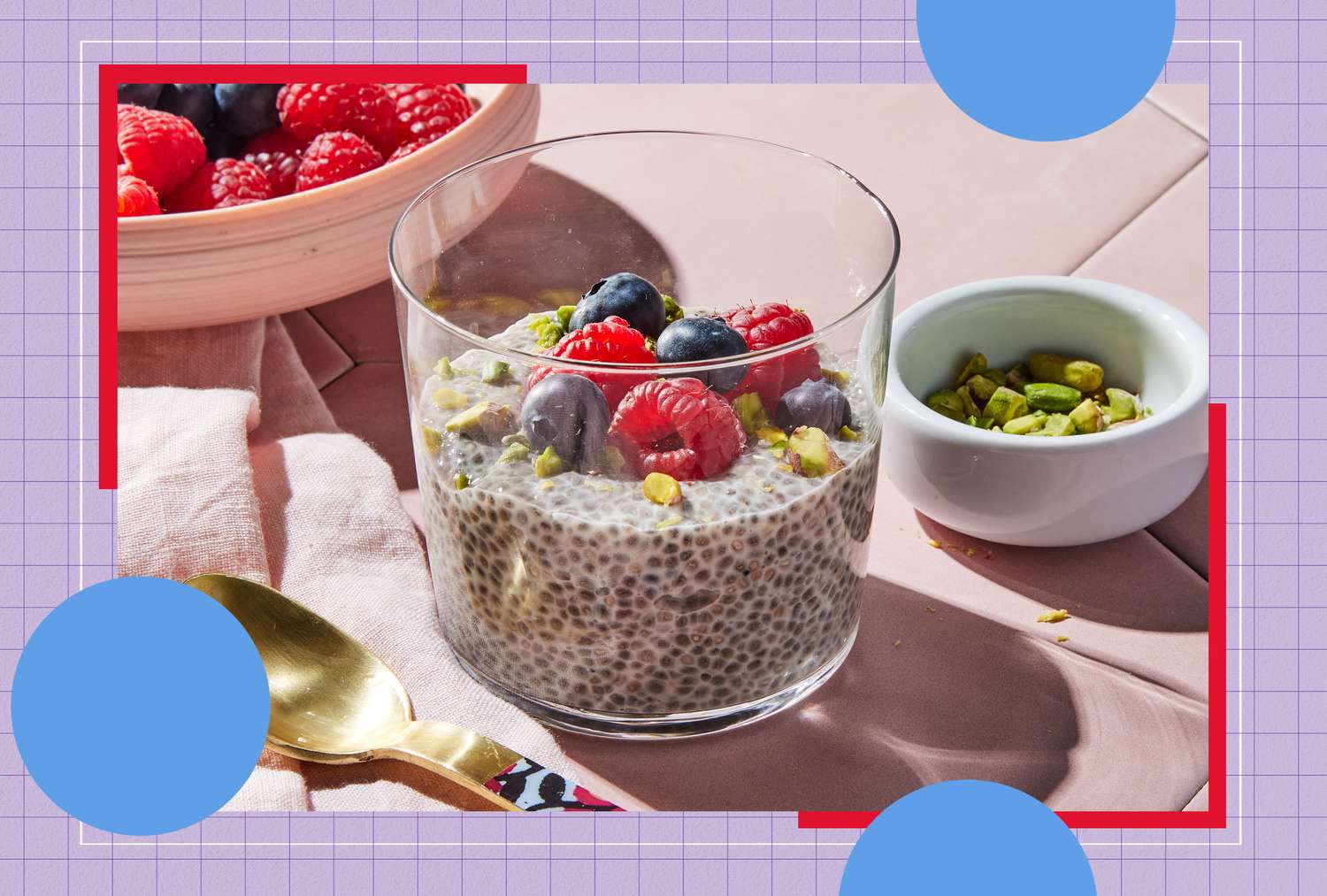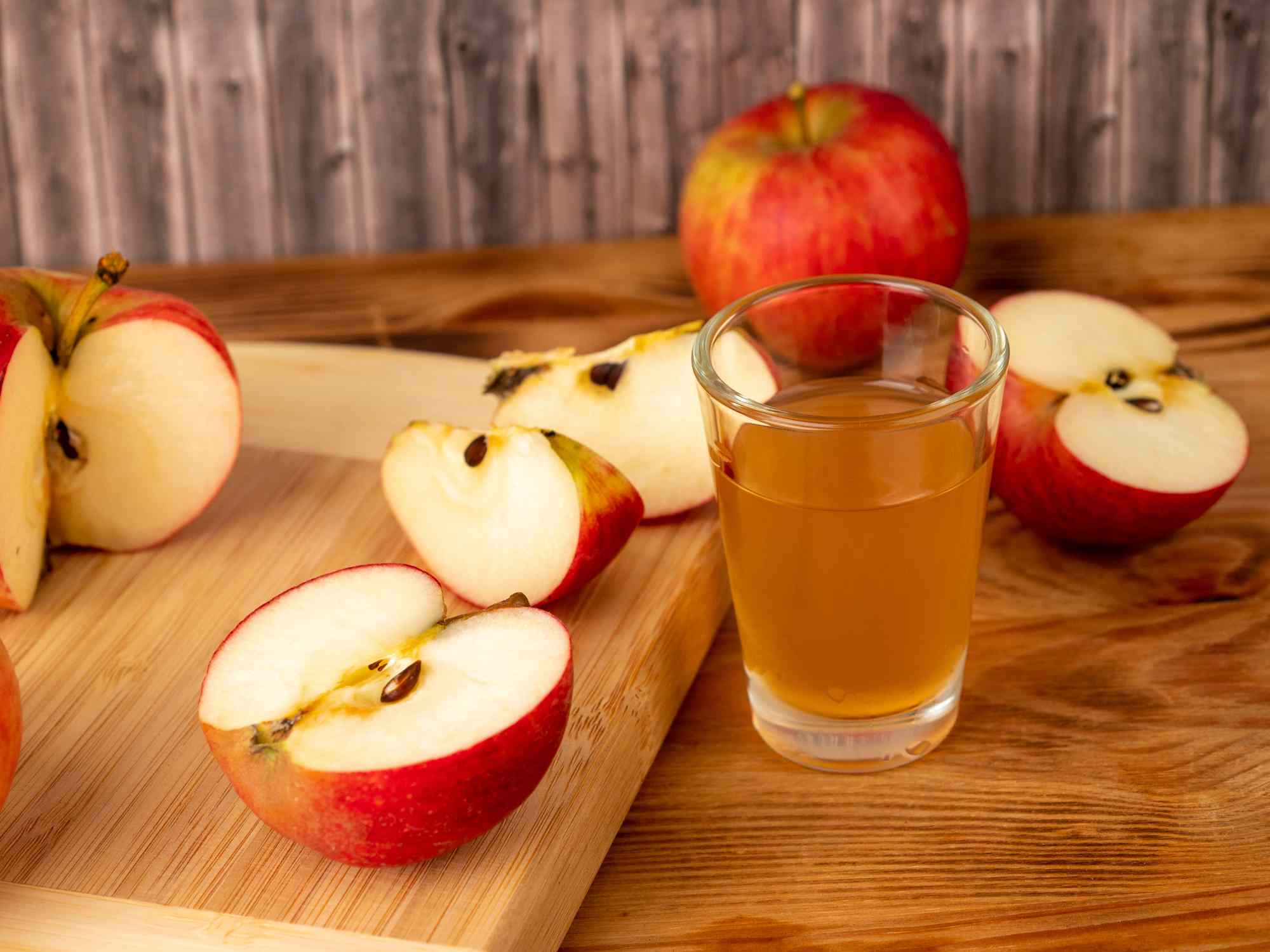
What Happens to Your Body When You Eat Chia Seeds Regularly
Key Takeaways
- Chia seeds are packed with fiber, plant-based protein, healthy fats and omega-3 fatty acids.
- They can help tame inflammation, prevent nutrient deficiencies and support your gut and heart health.
- There are tons of ways to enjoy chia seeds; try adding them to smoothies, overnight oats and salads.
Chia seeds have exploded in popularity in recent years. These tiny black seeds pack a nutritional punch. “Just 2 tablespoons of this small but mighty seed can provide 5 grams of protein, a whopping 10 grams of fiber, and 5 grams of omega-3 fatty acids (ALA), which is great for reducing inflammation and lowering your colorectal cancer risk!” says Jamie Baham, M.S., RDN, LD, cancer prevention dietitian nutritionist.
Chia seeds can also help lower your risk of heart disease and improve gut health. We spoke with dietitians and reviewed the latest research on the benefits of chia seeds, along with their nutrition profile and potential health risks. Plus, learn a few simple ways you can incorporate them into your diet!
Health Benefits of Chia Seeds
Provide Antioxidants
“Chia seeds are a great source of antioxidants. Antioxidants protect against free radicals in the body that can contribute to cell damage and disease,” says Patricia Kolesa, M.S., RDN, registered dietitian nutritionist. In fact, research shows that the antioxidants in chia seeds can help protect the heart and liver and prevent certain types of cancer. Their antioxidant effects also support healthy aging.
Contain Plant-Based Protein
Whether you eat meat or not, chia seeds are a nutrient-dense source of plant-based protein worth adding to your diet. Each one-ounce serving of chia seeds has 5 grams of protein. So adding a couple of spoonfuls of chia seeds to your meals is an easy way to enhance the total protein content. They pair well with other vegetarian protein-rich foods like nuts, nut butter, and yogurt.
“Plant-based proteins have been shown to reduce the risk of heart disease, diabetes and certain cancers. Protein can also support satiety and muscle maintenance in the body,” says Kolesa.
May Support Gut Health
Many of the nutrients in chia seeds—including fiber, prebiotics, antioxidants and omega-3s—can do wonders for your gut health. They encourage the growth of healthy bacteria in your gut while preventing harmful bacteria from wreaking havoc on your system. Yes, that includes keeping constipation at bay. The fiber and antioxidants in chia seeds may also help prevent colorectal cancer.
May Improve Heart Health
Chia seeds are a source of an omega-3 fatty acid called alpha-linoleic acid (ALA). “We cannot produce ALA on our own and must get it through food. Alpha-linolenic acid may be associated with decreased heart disease risk,” says Kolesa. For example, a 2022 study found that eating 1 extra gram of ALA per day was linked with a 5% lower risk of dying from cardiovascular disease.
Chia seeds are also rich in fiber, one of the most important nutrients for heart health. “Fiber is a great tool for lowering your cholesterol, which was shown in one study where participants were able to see a notable decrease in their blood pressure and cholesterol levels when adding chia seeds to their diets,” says Baham.
May Reduce Inflammation
Chia seeds have a few nutrients that can help stave off inflammation. For one, they’re rich in the omega-3 fatty acid ALA, which has anti-inflammatory properties. The antioxidants in chia seeds can also prevent inflammation caused by cell damage. Plus, the fiber in chia seeds promotes a healthy gut microbiome, which plays a role in reducing chronic inflammation.
Chronic inflammation is linked with health issues like diabetes, cardiovascular disease and cancer, so it’s worth incorporating foods that can help keep it in check.
Prevent Nutrient Deficiencies
If you follow a vegan or vegetarian diet, you may be at risk of certain nutrient deficiencies. After all, animal products like meat, fish, and dairy are some of the best sources of iron, calcium, protein and omega-3 fatty acids. The good news is that you can get all of these nutrients from chia seeds! So if you follow a vegan diet, chia seeds are worth making a part of your regular diet.
Chia Seeds Nutrition Facts
One ounce (about 2 tablespoons) of chia seeds has the following nutrition profile:
- Calories: 138
- Carbohydrates: 12 g
- Dietary Fiber: 10 g
- Protein: 5 grams (g)
- Total fat: 9 g
- Saturated fat: 1 g
- Cholesterol: 0 g
- Sodium: 5 mg (2% Daily Value)
- Calcium: 179 mg (14% DV)
- Iron: 2 mg (12% DV)
- Magnesium: 95 mg (23% DV)
- Phosphorus: 244 mg (20% DV)
- Zinc: 1 mg (12% DV)
As you can see, chia seeds are incredibly nutritious. They’re full of vitamins, minerals and fiber. Plus, they’re rich in heart-healthy fats. They’re a plant source of nutrients like calcium, iron and omega-3 fatty acids that you may struggle to consume enough of if you follow a vegetarian or vegan diet.
Potential Downsides and Precautions
Chia seeds are generally very healthy and worth incorporating into your diet. However, there are some potential risks to note. If you’re taking certain medications, such as anticoagulant and antiplatelet drugs, or are under treatment for diabetes or high blood pressure, chia seeds may interact with these drugs. So be sure to consult your health care provider to prevent any side effects.
“While chia seeds are a good source of fiber, introducing too much at once may contribute to constipation and stomach discomfort,” says Kolesa. If you don’t eat much fiber now, then it’s probably best to up your intake of chia seeds gradually.
Also, be sure to drink plenty of water as you add more chia seeds to your diet. “Fiber should also be consumed with water due to fiber being an excellent stool producer. Be aware that producing more stool without adequate hydration will lead to constipation,” says Baham.
If you have a GI disorder like irritable bowel syndrome (IBS) or inflammatory bowel disease (IBD), the fiber content of chia seeds could cause flare-ups, so it’s best to speak with a registered dietitian for individualized guidance.
5 Ways to Enjoy Chia Seeds
There are so many fun ways to add chia seeds to your meals and snacks. Whether you’re making something savory or sweet, chia seeds can enhance the nutrition of your dish. “Chia seeds can be easily added to recipes like smoothies, yogurt bowls and overnight oats. If you’re feeling more adventurous, try preparing a chia seed pudding or homemade granola,” says Kolesa. They can also be sprinkled on salads or grain bowls! Here are some tasty ways to eat more chia seeds:
- Make chia pudding. Soak chia seeds in your favorite milk for a few hours, and you’ll have chia pudding! “Chia seed pudding is a tasty treat for a quick breakfast on the go or a satisfying snack in the afternoon,” says Baham.
- Use as a vegan egg replacement. If you don’t eat eggs, here’s a vegan alternative: mix one tablespoon of chia seeds with three tablespoons of water and let it sit for 5-15 minutes. You can use this as a substitute for eggs in baked goods. “I love to use chia as an emulsifier in recipes like my homemade granola bars for patients that have an egg allergy,” says Baham.
- Add to smoothies. One easy way to eat more chia seeds is to blend them into your smoothies. “Adding a serving of chia seeds to Greek yogurt smoothies can make a prebiotic and probiotic combo supporting digestion,” says Baham.
- Sprinkle on salads. Chia seeds have a pretty neutral flavor on their own, so they mix well into savory dishes, too. Top your favorite salad with chia seeds for a fiber and omega-3 boost.
- Top oatmeal and yogurt. Chia seeds make a great topping or mix-in for oatmeal and yogurt parfaits. You can even add chia seeds to your overnight oats to make a chia pudding/overnight oats hybrid.
Top-Rated Chia Seeds Recipes to Try
The Bottom Line
There’s no question about it, chia seeds are incredibly nutritious! They’re full of fiber, plant-based protein, omega-3s, healthy fats and antioxidants. These nutrients can help improve gut health, support heart health, lower inflammation and prevent nutrient deficiencies. To incorporate them into your diet, add them to smoothies, yogurt bowls, oatmeal and salads. You can also use them to make chia pudding, a tasty breakfast or snack!
Frequently Asked Questions
-
How many chia seeds should you eat a day?While there’s no specific daily recommendation for chia seeds, one serving is one ounce—about two tablespoons. This serving size gives you plenty of fiber, vitamins, minerals and omega-3s. Eating more is usually safe (unless you’re on certain medications), but be careful about increasing your fiber intake too quickly, as this can cause gas, bloating and stomach upset.
-
What do chia seeds do for the body?Chia seeds help improve gut health, lower cholesterol and reduce inflammation because they’re rich in fiber, healthy fats and antioxidants. They also provide key nutrients you may struggle to eat if you follow a vegan diet, like iron, calcium, protein and omega-3s.
-
Can chia seeds reduce belly fat?Chia seeds alone (or any single food) cannot reduce belly fat. That said, they are rich in fiber and protein, which can help you feel fuller and longer.
-
Are chia seeds better than fish oil?Chia seeds and fish oil are both excellent sources of omega-3 fatty acids. The omega-3s in fish oil—EPA and DHA—are more efficiently absorbed by the body. However, chia seeds are an amazing source of omega-3s for those following a vegetarian or vegan diet.










